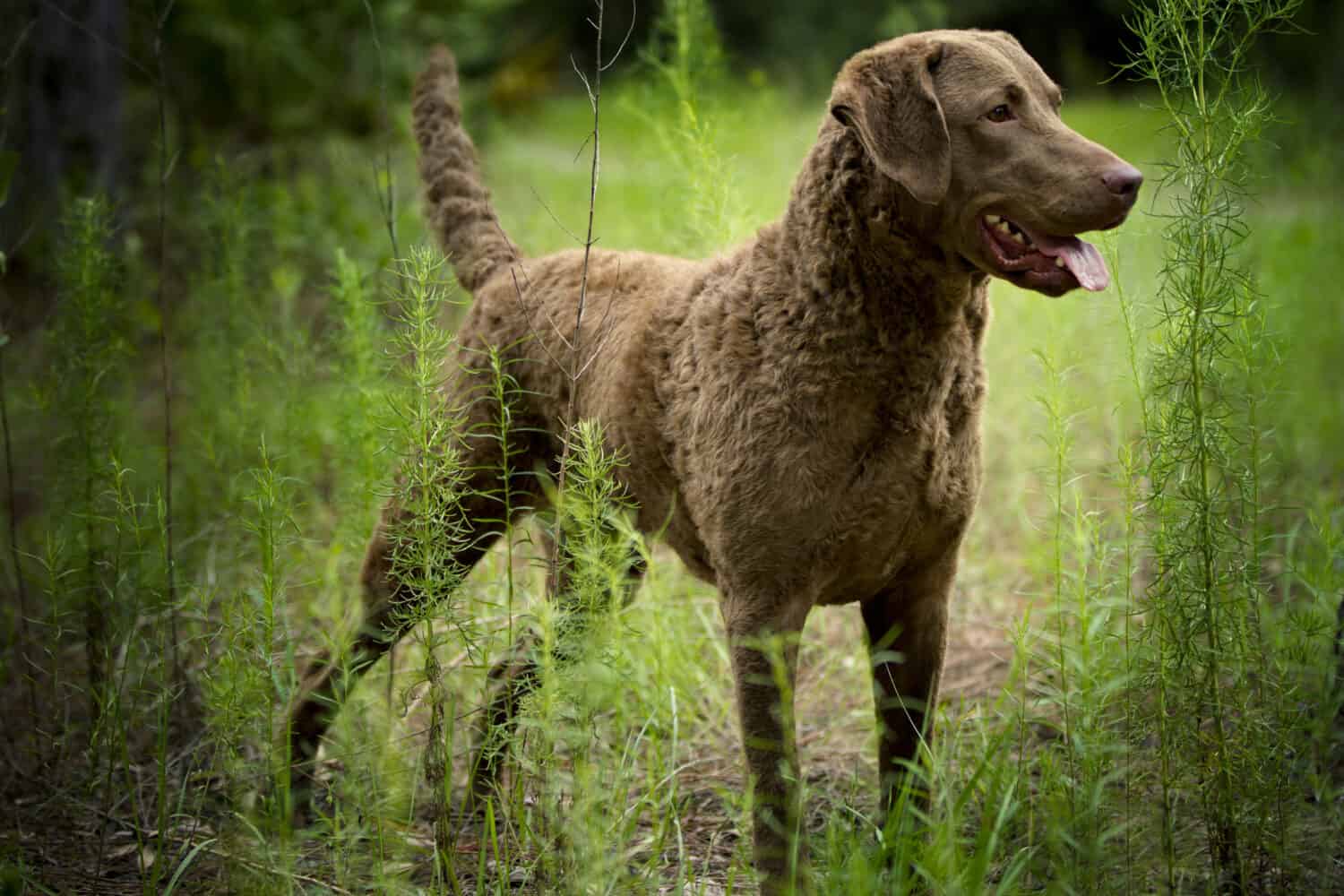There’s no dog quite like the Chesapeake Bay retriever, also referred to as Chessies. What makes this breed unique, and what are typical Chesapeake Bay retriever prices? We’ll cover the breed standard, cost, and expense of having one of these dogs as a pet.
Origin of the Breed
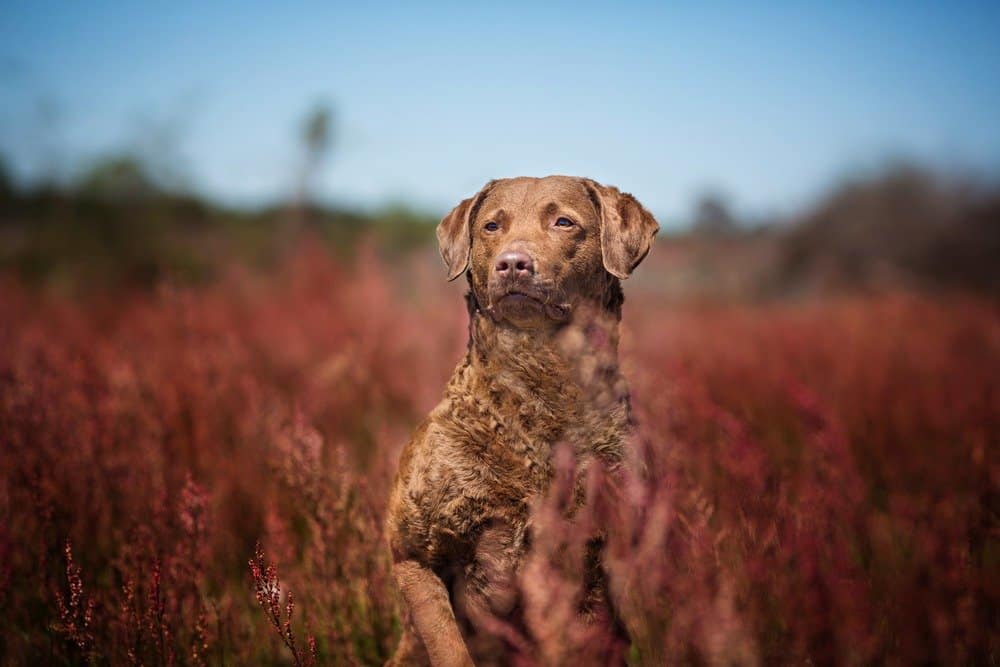
Chessies are rugged, outdoor-loving dogs with high energy and intelligence.
©Kerrie T/Shutterstock.com
The legend of this hunting dog breed states that in 1807, rescuers giving aid to a sinking ship in the Chesapeake Bay took the puppies found onboard. These puppies were reportedly Newfoundland puppies, which were popular sailing dogs. The dogs were bred with local dogs, producing the breed recognized as the Chesapeake Bay retriever in 1912.
Appearance
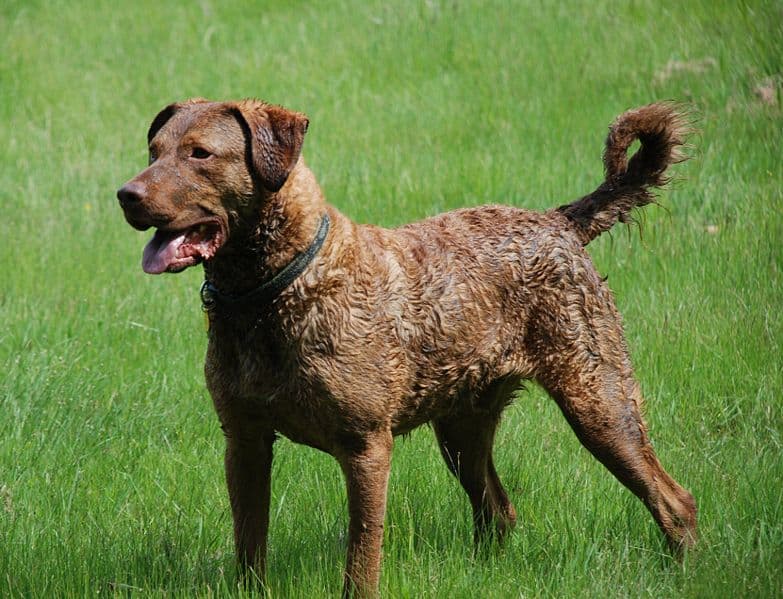
The Chessie’s broad chest is an AKC breed requirement.
©Keith Rousseau / Creative Commons – Original
The distinctive appearance of this breed sets it apart. The breed has clear amber-to-yellow eyes and hindquarters that are equal in height to its shoulders. For AKC standards, the coat can be every shade of brown. Lighter coats ranging from yellow-blonde, tan, red, or chestnut tints are also recognized. White spots on the chest, stomach, or toes are acceptable. The fur of this dog is wavy, shiny, and thick. Chesapeake Bay retrievers have a double fur coat. Closer to the skin, a short, softer fur grows, covered by a longer, coarser coat. This type of coat helps the retriever maintain body heat in cold or wet weather conditions.
The Chessie is a medium to large dog, with a muscular, broad chest that enables swimming even in icy water. The taller hindquarters allow the dog to run at higher speeds as well as clear taller jumps. They’re also one of the few dog breeds to have webbed feet.
Temperament and Intelligence
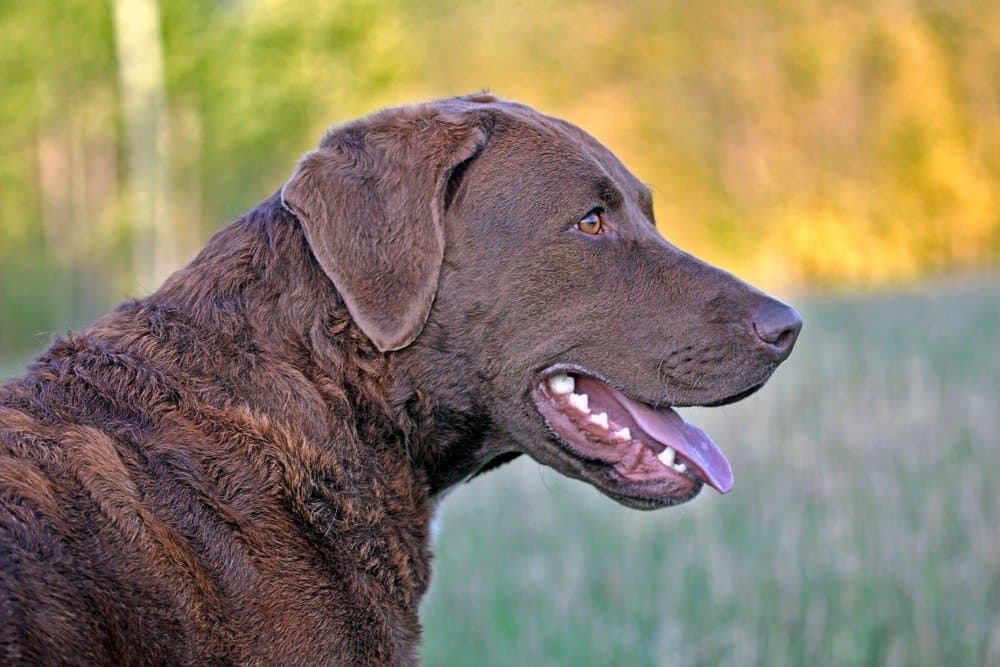
Chesapeake Bay retrievers are known for their ability to train but can be somewhat stubborn.
©rokopix/Shutterstock.com
Chesapeake Bay retrievers are friendly and social dogs. They develop bonds with their owners and express happiness. In fact, some Chesapeake Bays even mimic their owners by ‘smiling’ at them. While some are vocal, this is an individual personality trait and not a breed standard.
While the dog is friendly, it’s known to be intelligent and sometimes stubborn. Chesapeake Bay retrievers need daily activity and proper training with their families. Although they are sometimes stubborn in nature, Chessies are fast learners. The breed, as a whole, shows great skill in competitive sports requiring agility.
As a very active breed, owners who live in apartments will need to take the time to exercise with their dogs daily. Without exertion, Chessies may become bored and destructive.
How Much Does a Chesapeake Bay Retriever Cost?
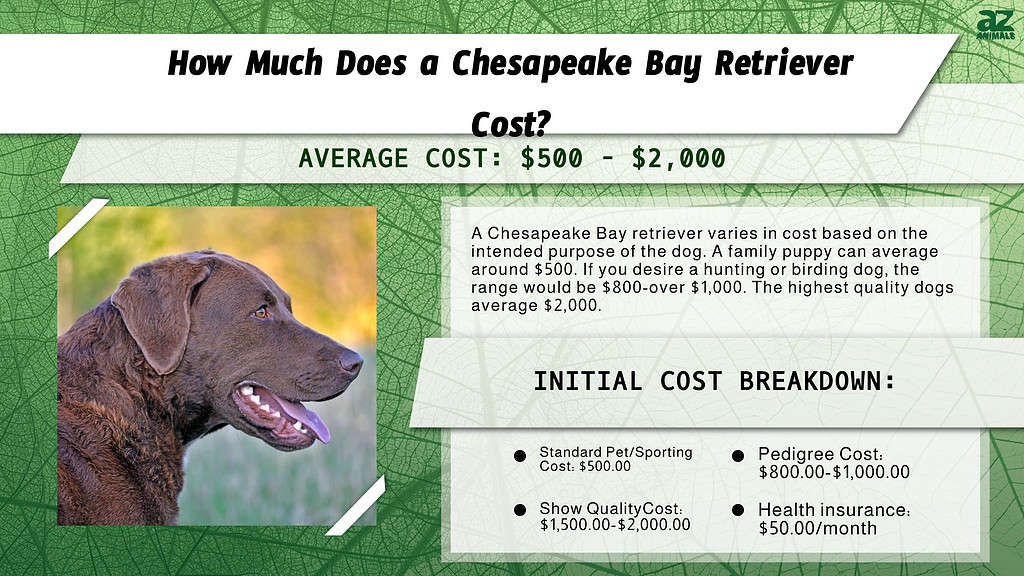
Chesapeake Bay retriever prices depend on where you purchase your puppy from as well as the intended purpose of the dog. If you want a Chesapeake for a pet, puppies are available in the range of about $500.00 dollars. If you plan on using your Chesapeake as a hunting and birding dog, a price of $800.00 to well over $1,000.00 is standard. For the highest quality specimen with breeding rights, $2000.00 or more is standard. In general, Chesapeake Bay retriever prices increase with show quality and ideal temperament.
Many professional breeders sell their puppies spayed or neutered. For this reason, if you intend to breed your Chesapeake, this will increase the cost. Puppies bred from show dog lineage will be the most expensive. Choosing a puppy with a known lineage is an investment in a future show dog.
| Standard Pet/Sporting Chesapeake Bay Retriever Cost | $500.00 |
| Pedigree Chesapeake Bay Retriever Cost | $800.00-$1,000.00 |
| Show Quality Chesapeake Bay Retriever Cost | $1,500.00-$2,000.00 |
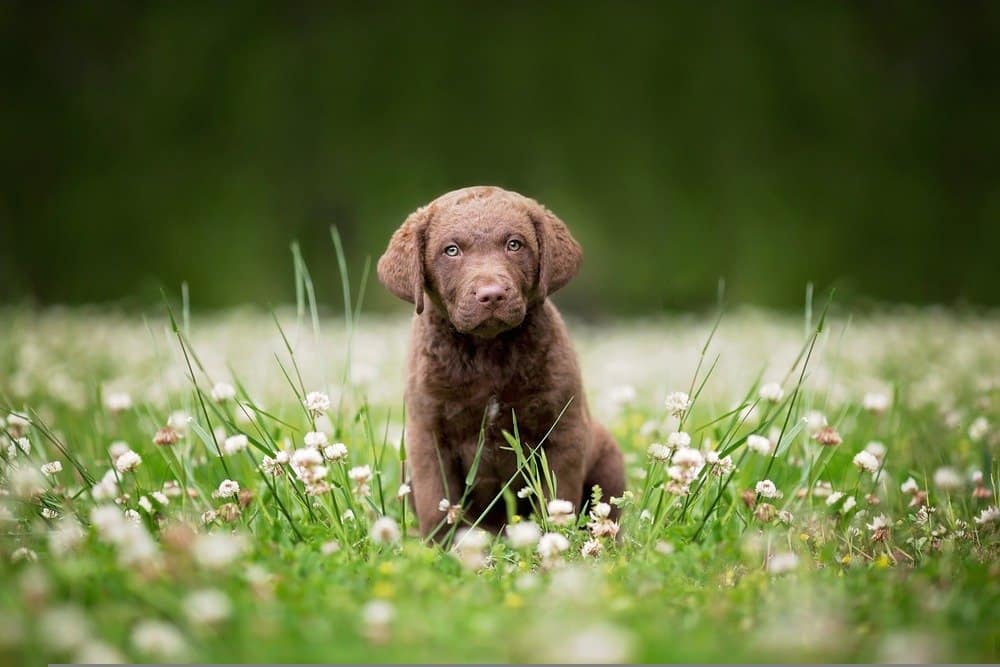
It’s hard to believe this small puppy will grow up to be an efficient sporting and hunting dog.
©Kerrie T/Shutterstock.com
The Cost of Owning a Chessie
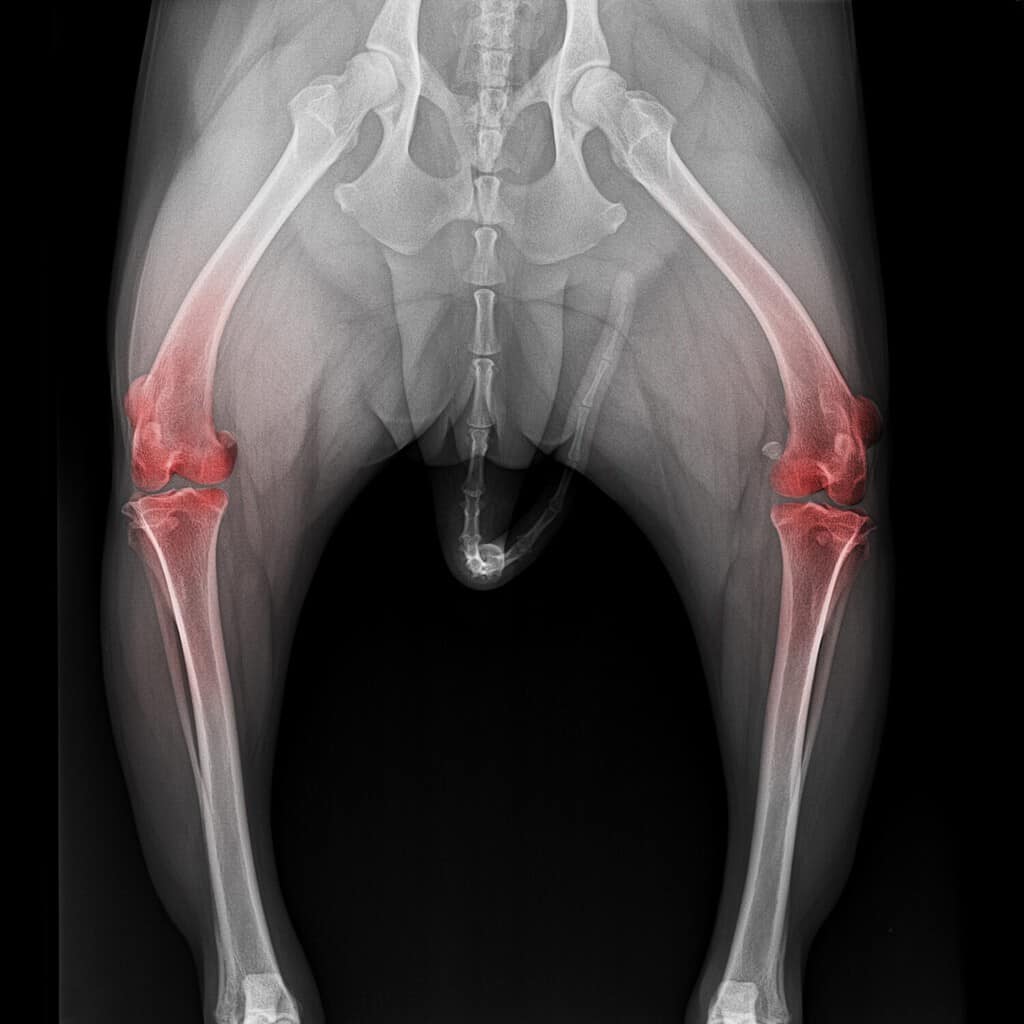
Hip dysplasia, or weakening of the hip joints, is a known health concern for the breed.
©Intarapong/Shutterstock.com
To protect the health of your dog, they must receive proper vet care, including vaccinations. Most local government laws require all dogs and cats to be vaccinated against rabies. Other necessary vaccinations include annual heartworm as well as Parvo, a deadly illness for puppies. Each of these vaccines averages between twenty and fifty dollars. Besides vaccines, your dog will likely need annual physicals, which can cost several hundred dollars depending on the tests your veterinarian orders.
Chessies do have specific health concerns. While both male and female dogs can suffer alopecia or loss of hair, many of their concerns can be more serious. Exercise-induced fainting, hip dysplasia, cataracts, and age-related blindness are known breed health conditions. Also, like all dogs with a broad chest, Chessies are also at risk of gastric torsion. This occurs when the dog’s intestines twist inside the abdomen and requires emergency surgery. As these conditions often need costly surgery to correct, many owners choose to buy health insurance for their pets.
While there are many carriers, the average cost is approximately $50.00 dollars a month. Be sure to pick a plan that will provide the benefits you need to keep your dog healthy.
With proper care, your Chesapeake can live up to fourteen years of age.
Do Chesapeake Bay Retrievers Need a Special Diet?
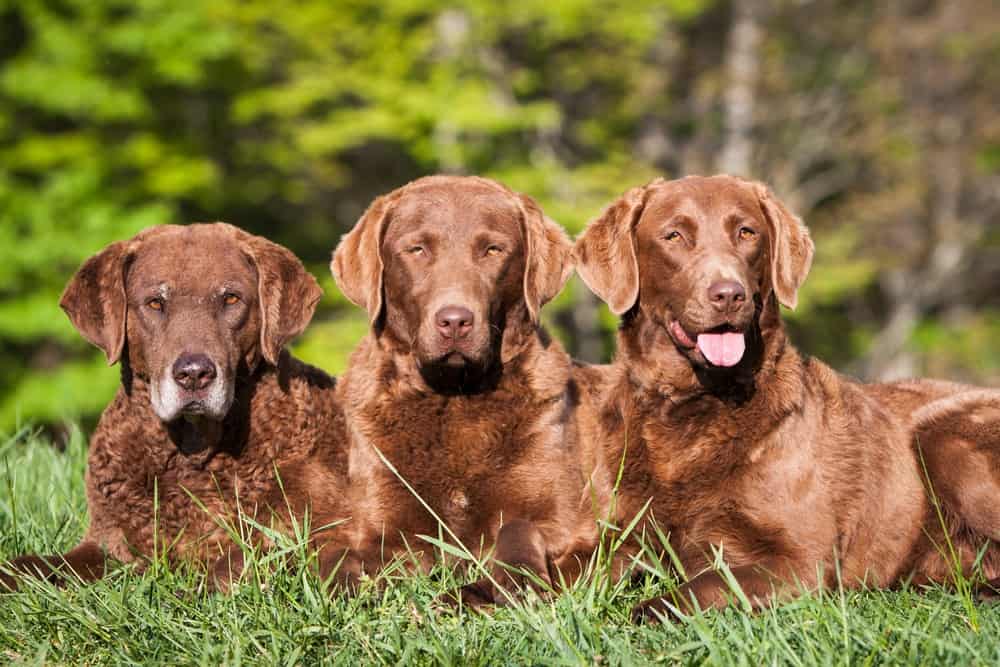
A well-balanced diet ensures your Chesapeake Bay retriever’s health.
©Kerrie T/Shutterstock.com
Chessies don’t need a special diet to maintain health. However, the formula you select can help prevent health problems. As they’re larger dogs, they may tend to swallow smaller dog food pieces whole. While this isn’t likely to harm your dog, it prevents the natural dental cleaning properties of crunchy foods. This can lead to a build-up of plaque and tartar, eventually leading to tooth loss. Be sure to choose a kibble for your dog that’s medium in size to encourage chewing.
Formulas that are high in vitamins A, E, and Omega Fatty acids can help to keep your dog’s eyes, skin, and coat healthy. Vitamin E and Omega 3 oils also assist in brain development as well as slowing mental decline in senior dogs.
Is a Chesapeake Bay Retriever Right for You?

It’s hard to resist smiles from a Chessie.
©Erik Lam/Shutterstock.com
Chesapeake Bay retrievers maintain a spot around fifty in the one hundred most popular dogs for a reason. Their sports ability, high training capacity, and friendly nature make them ideal for many people. Some families find the energetic dogs are a great addition, as they’re happy to play with children. They do need regular brushing of their double coat to prevent matting and remove shedding, as well as plenty of exercise. If you have several pets, however, a Chesapeake may not be willing to give up its ‘top dog’ status.
Finally, before adding a Chesapeake Bay retriever to your life, it’s important to ensure that you have the time to properly train your new dog as well as provide abundant exercise opportunities.
Ready to discover the top 10 cutest dog breeds in the entire world?
How about the fastest dogs, the largest dogs and those that are -- quite frankly -- just the kindest dogs on the planet? Each day, AZ Animals sends out lists just like this to our thousands of email subscribers. And the best part? It's FREE. Join today by entering your email below.
Thank you for reading! Have some feedback for us? Contact the AZ Animals editorial team.

